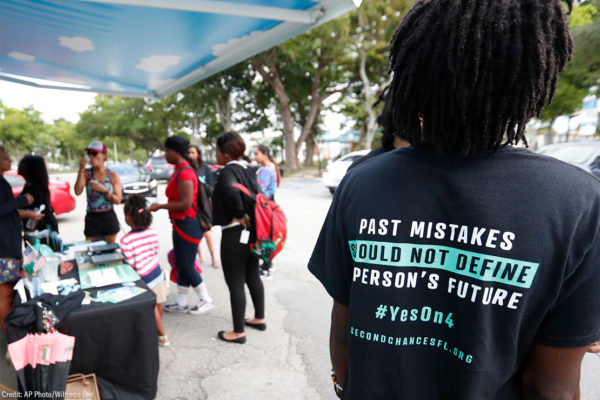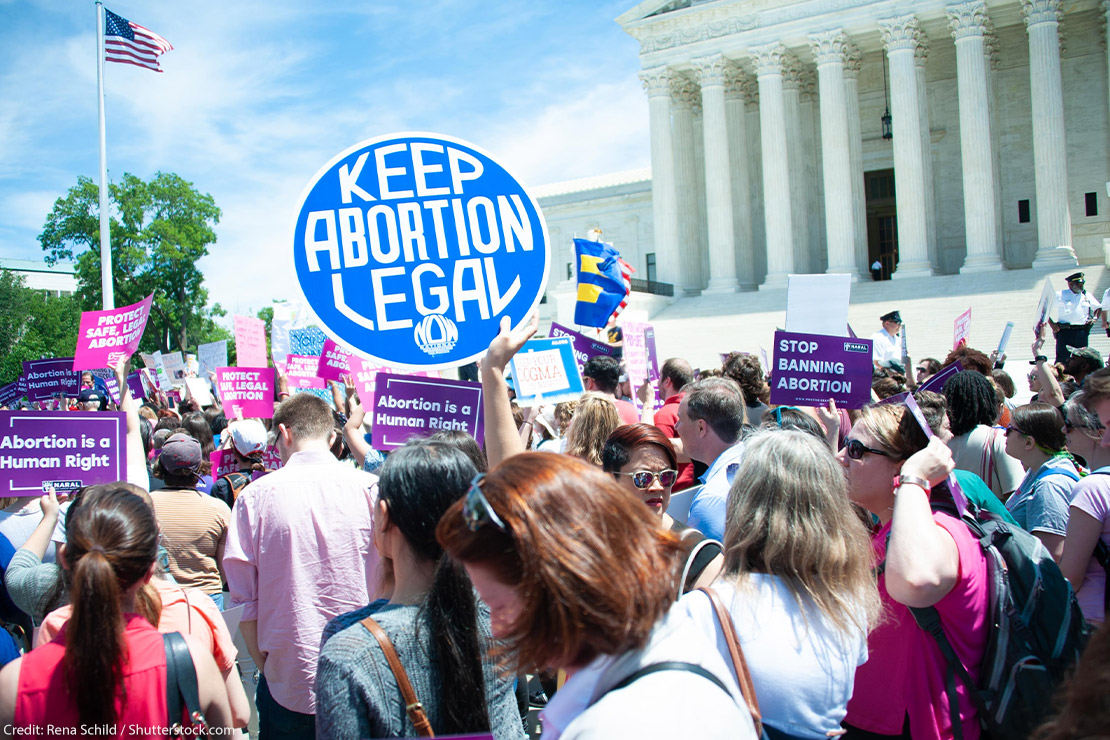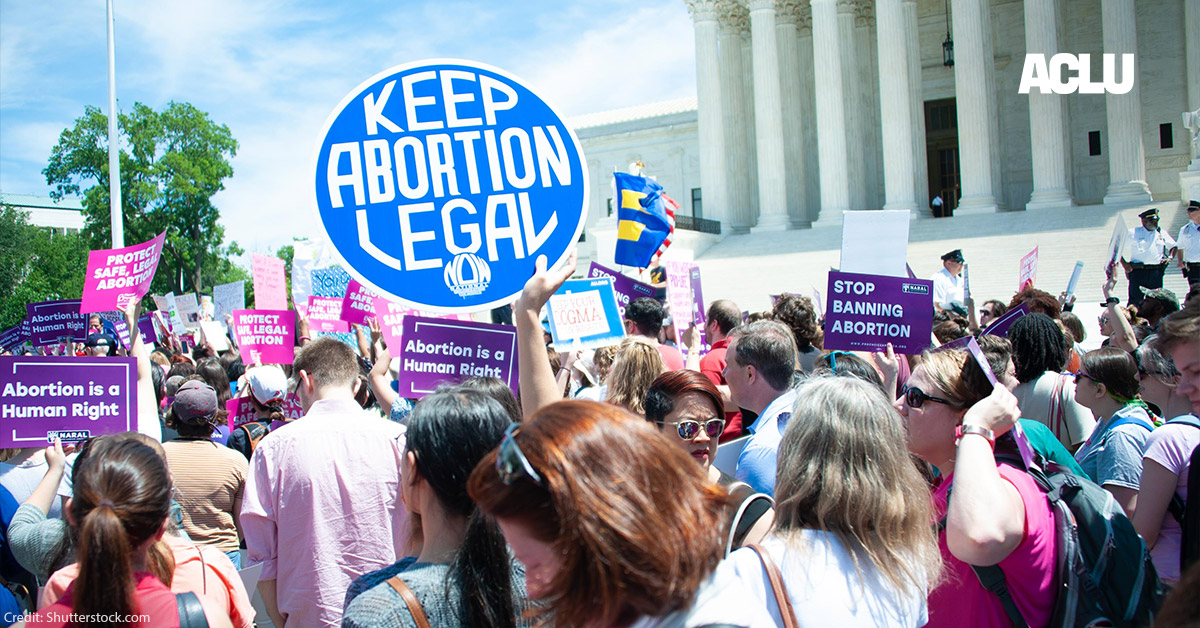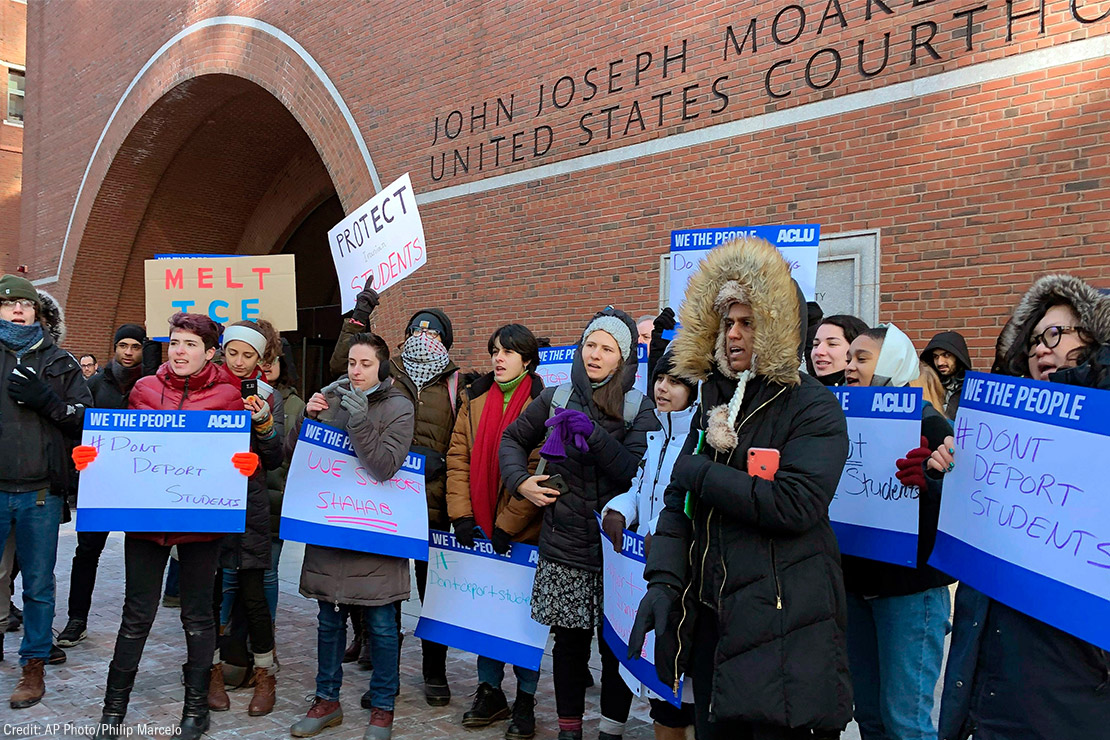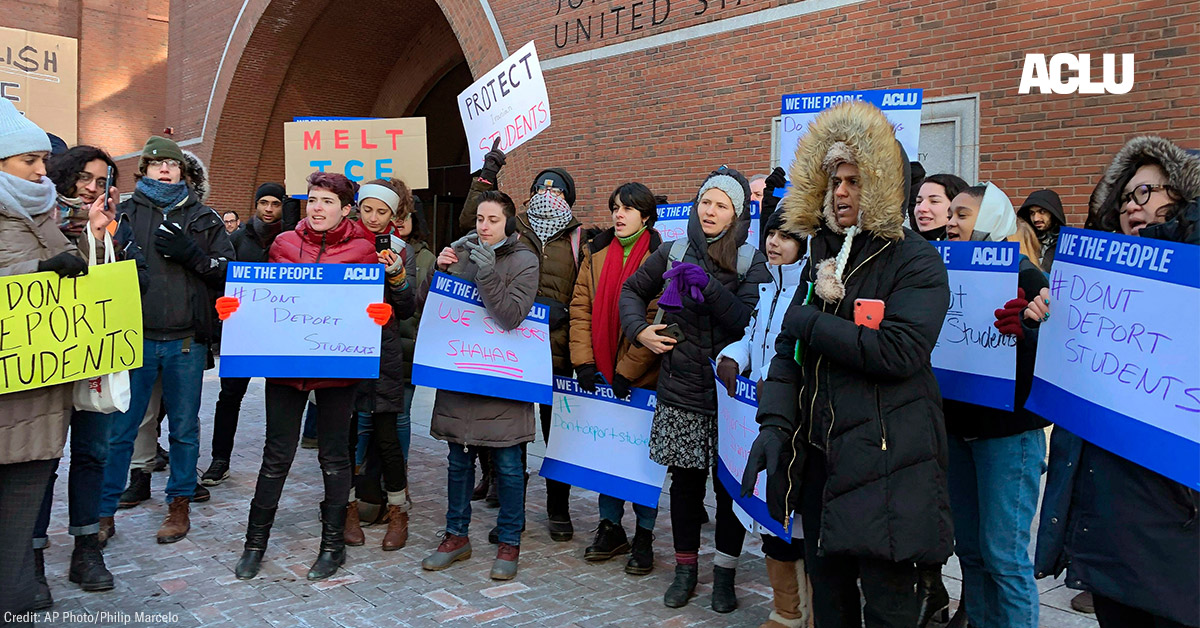The right to vote cannot depend on how much money you have. That’s what a federal court ruled in October, when it blocked Florida’s attempt to force returning citizens — people with felony convictions who have completed incarceration, probation, and parole — to pay for their basic right to vote. Florida voters have made clear that they want returning citizens to rejoin the franchise, but as we approach the 2020 primaries, politicians are scrambling to stifle the voices of these newly eligible voters. We’re going back to court to defend their rights at the Eleventh Circuit Court of Appeals next week.
In 2018, Floridians resoundingly voted to pass Amendment 4, an amendment to the state Constitution ending permanent disenfranchisement of people with felony convictions. The law affected more than a million returning citizens. Amendment 4 is historic not only for Florida but the whole nation — it’s the single largest expansion of voting rights in the United States since the 26th Amendment lowered the voting age to 18. And it had a profound racial justice impact. Before Amendment 4’s passage, more than 20 percent of the Black voting-age population in Florida was disenfranchised due to a felony conviction.
“The passage of Amendment 4 allowed me to register to vote. That was one of the happiest days of my life. I joined the litigation to fight for my right to vote and to have a voice for the 1.4 million Floridians that are also affected by this law.” —Betty Riddle, plaintiff
That progress is now on the line. In June, Governor Ron DeSantis put hundreds of thousands of newly eligible voters in danger of being permanently disenfranchised yet again when he signed Senate Bill 7066. Under SB7066, returning citizens must pay the exorbitant court costs, fines, and fees levied against them at the time of their conviction, or lose their right to vote. This is clearly unconstitutional — Florida cannot restore voting rights to people wealthy enough to pay off their fines and fees but deny them for people unable to pay those obligations.
The ink hadn’t yet dried on SB7066 when we filed our lawsuit challenging it with partners at the ACLU of Florida, the Brennan Center, and the NAACP Legal Defense Fund. When we won a preliminary injunction in October, a federal judge declared that “the State of Florida … cannot deny restoration of a [returning citizen’s] right to vote solely because the [returning citizen] does not have the financial resources necessary to pay” their legal financial obligations. On the same day of our victory, Governor DeSantis signaled his agreement with the decision; his spokesperson told the media that the Governor “recogniz[es] the need to provide an avenue for individuals to pay back their debts as a result of true financial hardship.”
The governor’s actions, however, tell an entirely different story. Since our preliminary injunction victory, the state has refused to provide any guidance to voters or local supervisors of elections, or develop a system for people unable to pay their fines and fees. After 40 days of dragging their feet, DeSantis and the Florida Department of State filed an appeal in the Eleventh Circuit.
Governor DeSantis is trying to run out the clock before the March 2020 primary, and is deliberately sowing confusion to dissuade eligible voters from registering and going to the polls. Florida is leaving its citizens on their own to figure out what fines and fees they owe and whether they are eligible to vote. With radio silence from the state, it’s likely that many will refrain from voting out of fear of prosecution. Chilling the participation of these new voters is the whole point of these efforts.
“I’ve never known a life where I didn’t have barriers and voting is the first step to being able to remove those barriers.” —Marq Mitchell, plaintiff
We will continue fighting in federal court for our clients and the hundreds of thousands of Floridians' voting rights that SB7066 seeks to unconstitutionally and permanently eliminate. While the Florida Supreme Court recently issued an advisory opinion determining that fines and fees are part of a “sentence” under Amendment 4, this does nothing to change the preliminary injunction issued in our case or what the Constitution requires. It is instead Florida’s Legislature that can fix SB7066 by removing the fines and fees requirement for people who can’t afford to pay.
Plenty of states have already set positive examples on restoring the right to vote. Many states have loosened disenfranchisement laws in recent years, with some dropping them altogether. Florida used to be one of the strictest states on felony disenfranchisement, but by passing Amendment 4 in the first place, Floridians demonstrated their commitment to ensuring that all citizens have an opportunity to vote. Change is possible and the people — not the politicians — are the ones leading the charge.
Voting is a basic right of citizenship. Losing this right is one of the many unjust consequences of a felony conviction, hindering returning citizens’ ability to fully participate in our democracy after they complete their sentences. The right to vote should never come with a price tag — and Florida cannot violate constitutional protections in order to keep people from the polls. We are confident the Eleventh Circuit will agree.
Orion Danjuma, Staff Attorney, ACLU Racial Justice Program,
Jonathan Topaz, Skadden Fellow, ACLU Voting Rights Project,
& Leila Rafei, Content Strategist, ACLU
Date
Thursday, January 23, 2020 - 11:30amFeatured image
